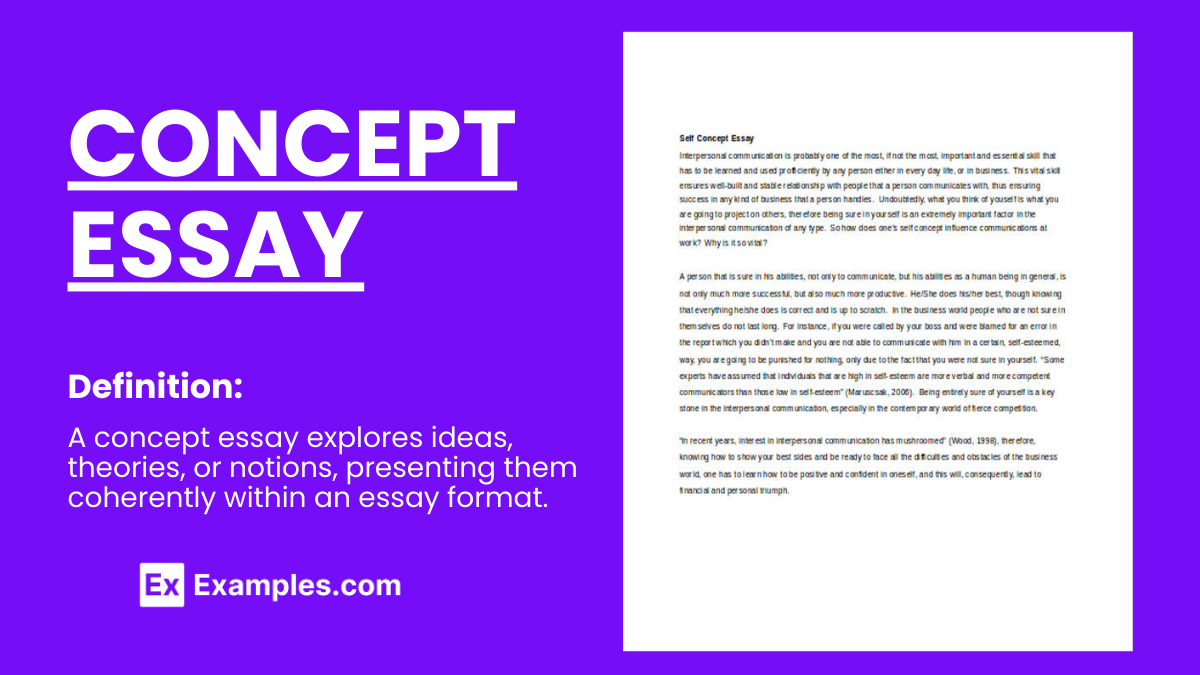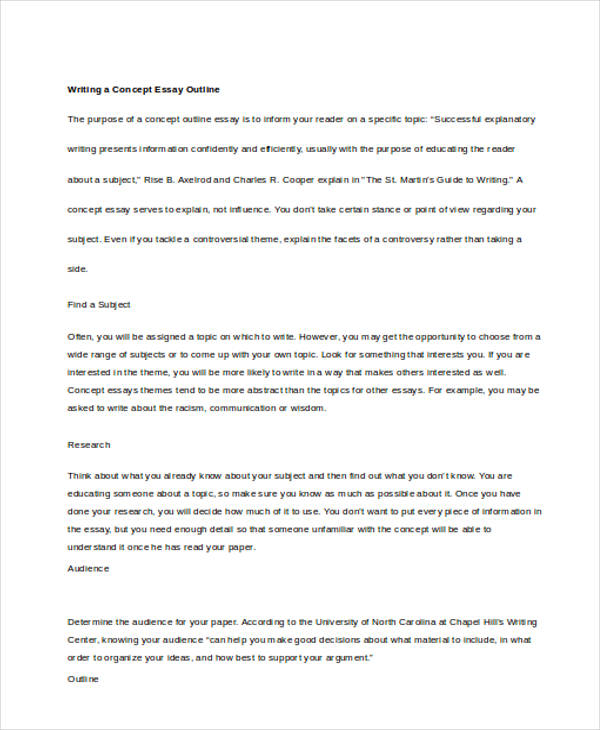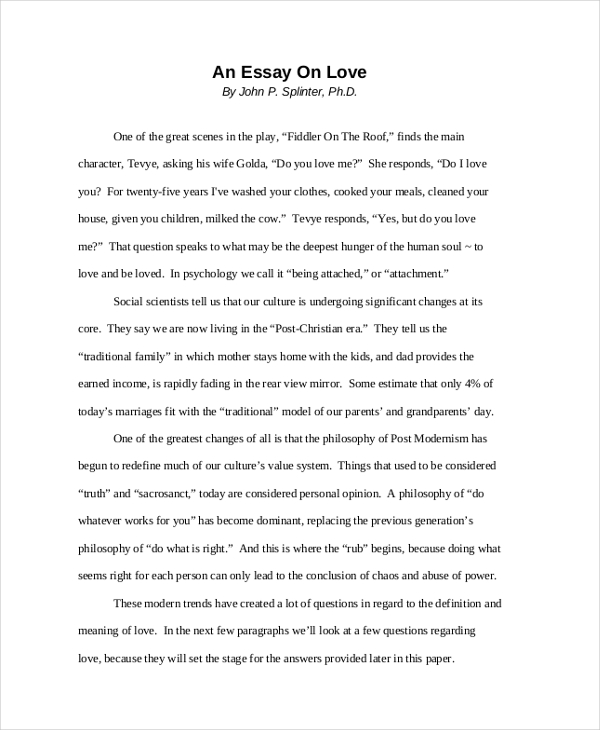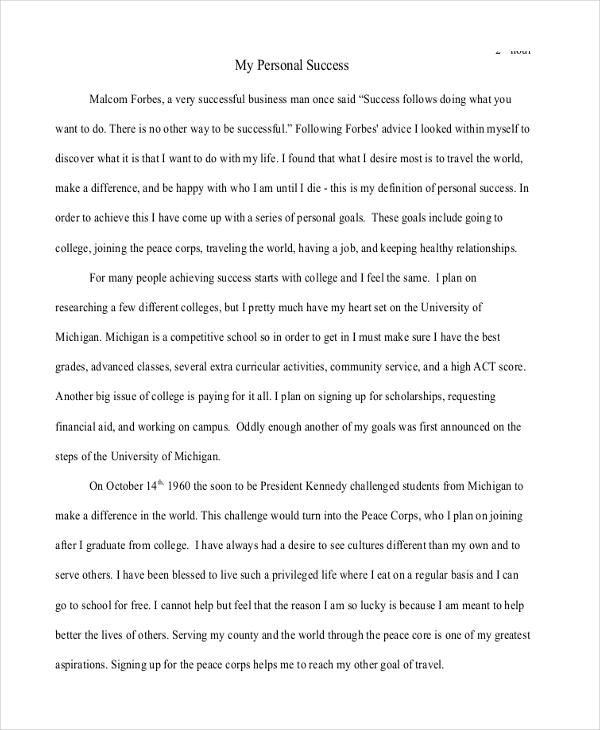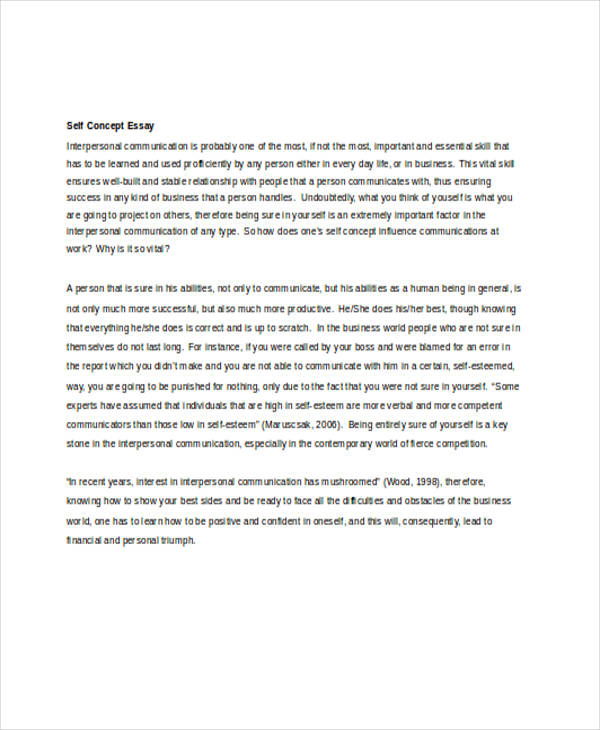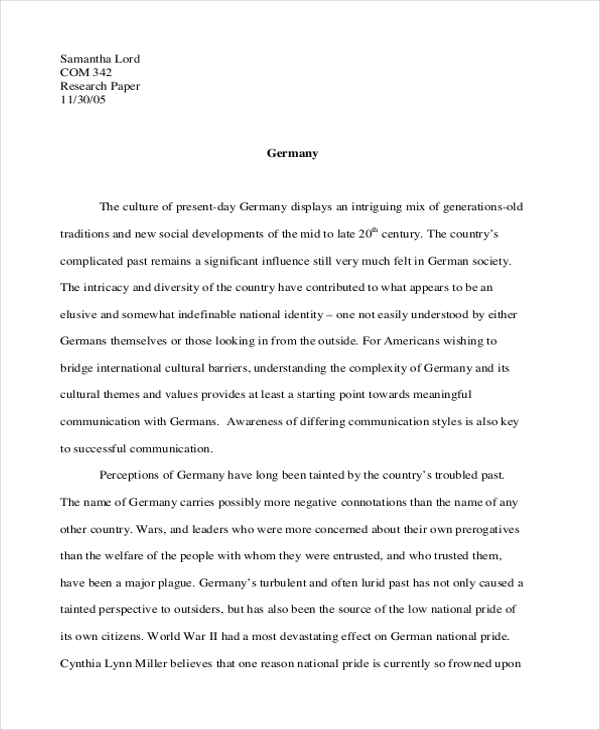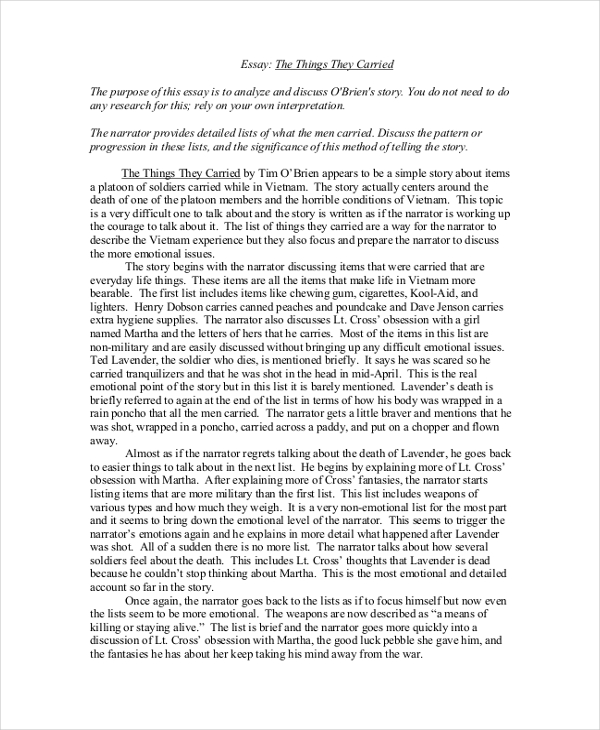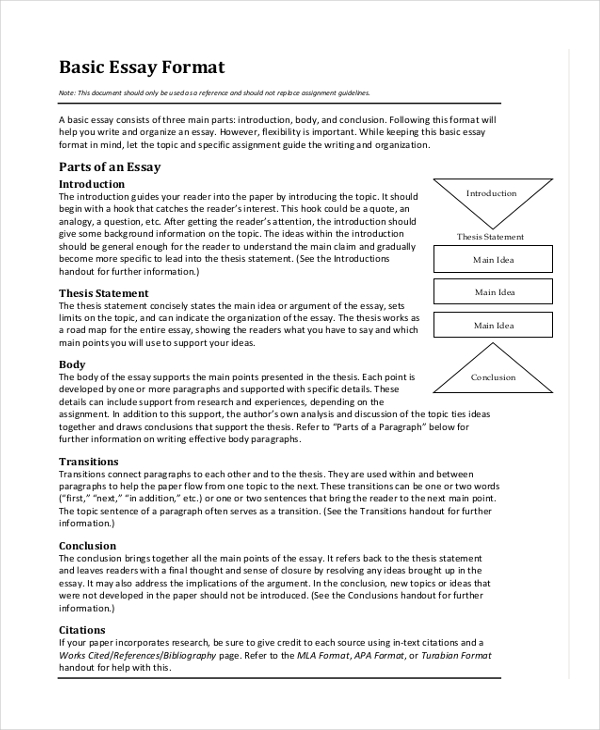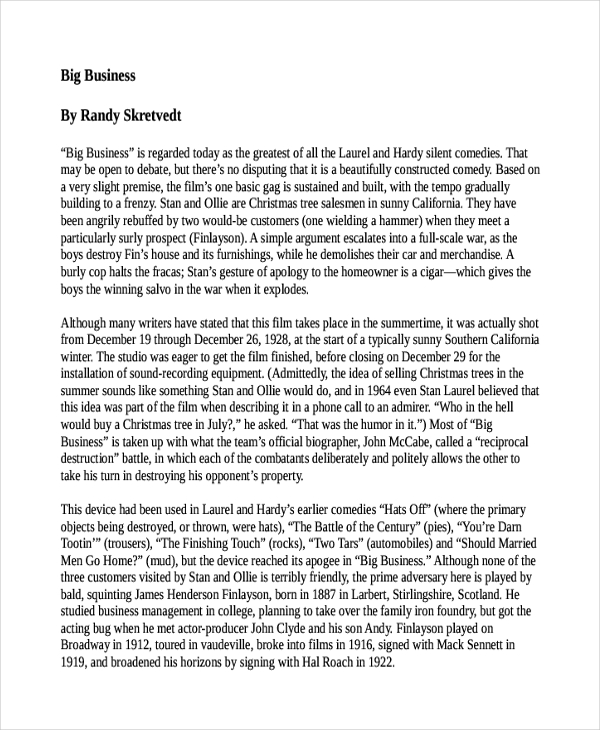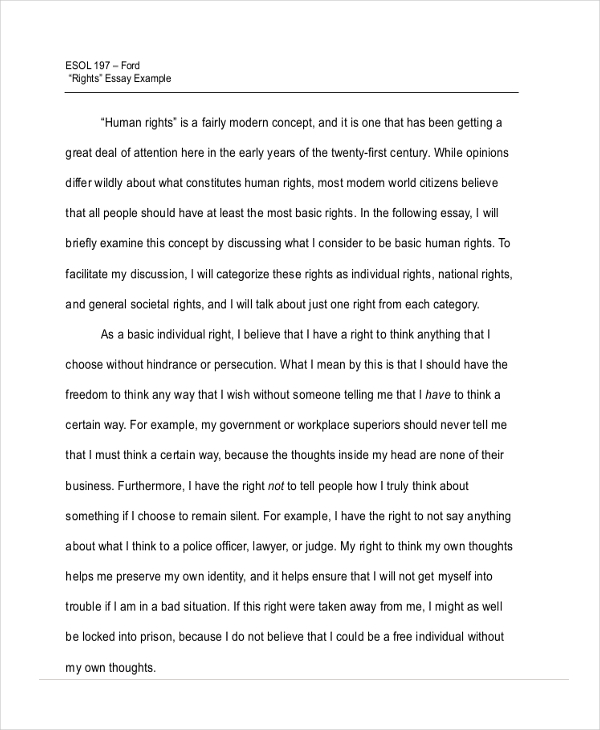30+ Concept Essay Paper Examples to Download
Every writer has his/her own way of presenting a topic or an idea to the readers. Some of them wants to stir imaginations and make you create characters and places of your own. Others want to provoke your emotions and indulge you into the story. While others want to simply demonstrate a subject.
Essay writing is considered a talent. It requires a creative mind to be able to present thoughts and emotions and put them into writing. And the most difficult part is how to make it appealing to the readers. Knowing how to start an essay is even more difficult because you have to find the right inspiration to write.
What is Concept Essay?
A concept essay is a piece writing that is used to present an idea or a topic with the sole purpose of providing a clear definition and explanation. Their usual content are those topics that may have previously been presented but were not given with full emphasis. Others are controversial and timely issues that raises questions but are not given full answers.
What is Concept Paper?
A concept paper is a brief document written to provide an overview of a project, research, or idea. It outlines the main goals, objectives, and methods of the intended project, serving as a preliminary proposal. Concept papers are often used to seek approval or funding, presenting the project’s significance, potential impact, and feasibility in a concise manner. This document helps stakeholders, such as sponsors or academic committees, understand the essence of the proposed work and decide whether to support it further.
Concept Paper Writing Topics & Ideas
In conceptual writing, the central focus lies on the idea or concept driving the work, positioning it as the cornerstone of the narrative. This approach dictates that all planning and critical decisions are determined in advance, rendering the actual writing process secondary. Essentially, the concept acts as a blueprint, guiding the creation of the text in a manner that is almost mechanical. Through this method, the initial idea transforms into an engine that propels the development of the written piece, underscoring the precedence of thought over the act of writing itself. Below are the topics and ideas of concept writing
- The Evolution of Digital Privacy
- The Psychology Behind Social Media Addiction
- The Impact of Remote Work on Urban Development
- Sustainability in Fashion: A New Trend
- The Future of Artificial Intelligence in Healthcare
- Cultural Identity in a Globalized World
- The Ethics of Genetic Editing
- The Role of Cryptocurrency in Modern Finance
- Mental Health Awareness in the Workplace
- The Influence of Music on Cognitive Development
- Climate Change and Its Effects on Biodiversity
- The Philosophy of Minimalism and Its Life Benefits
- The Rise of E-Learning and Its Educational Impacts
- Urban Farming: Solutions for Food Security
- Virtual Reality: Transforming Entertainment and Education
- The Gig Economy and Its Impact on Traditional Employment
- Social Entrepreneurship: Business for Social Good
- The Intersection of Art and Technology
- Cybersecurity in the Age of Internet of Things
- The Role of Nutrition in Preventing Chronic Diseases
Concept Essay Paper Format
Introduction
- Hook: Start with an engaging sentence to capture the reader’s interest.
- Background Information: Provide a brief context for the concept you are going to explore.
- Thesis Statement: Clearly state the concept or idea you will discuss, outlining the main point or argument of your essay.
Body Paragraphs
Each paragraph should focus on a specific aspect of the concept or idea.
- Topic Sentence: Introduce the main idea of the paragraph that supports your thesis.
- Explanation: Offer a detailed explanation of the idea, including definitions, descriptions, and relevant information.
- Examples and Evidence: Use specific examples, illustrations, or evidence to support your explanations and arguments. This could include statistics, quotes from experts, or real-life scenarios.
- Analysis: Analyze how the example or evidence supports your topic sentence and thesis, explaining its significance.
- Transition: Conclude the paragraph with a sentence that smoothly transitions to the next point or paragraph.
Conclusion
- Summary of Main Points: Briefly recap the key arguments or explanations presented in your essay.
- Restatement of Thesis: Reiterate your thesis statement, highlighting how it has been supported through your discussion.
- Final Thoughts: Offer closing remarks that leave a lasting impression on the reader. This could include implications, future prospects, or a call to action related to the concept.
Concept Paper Example
Free Download in Word Free Download in PDFEnhancing Digital Literacy in Rural Communities: A Pathway to Bridging the Digital Divide
The rapid advancement of digital technologies has significantly transformed the way we live, work, and communicate. However, this digital revolution has also led to a widening gap between urban and rural areas in terms of access to technology and digital skills. This concept paper proposes a comprehensive project aimed at enhancing digital literacy in rural communities as a fundamental step toward bridging the digital divide. By equipping rural populations with the necessary digital skills, the project seeks to empower individuals, improve educational outcomes, and unlock economic opportunities.
The purpose of this initiative is to develop and implement a scalable digital literacy program tailored to the needs of rural communities. This program will focus on basic computer skills, internet navigation, online safety, and the use of digital tools for education and entrepreneurship. The significance of this project lies in its potential to transform the lives of rural residents, providing them with the skills required to participate fully in the digital world.
Objectives of the project include:
- Assessing the current level of digital literacy in targeted rural areas.
- Developing a comprehensive digital literacy curriculum that addresses identified needs.
- Delivering digital literacy training to residents of rural communities through workshops and online modules.
- Establishing community-based digital hubs equipped with internet access and computing resources.
- Evaluating the impact of the program on participants’ digital skills, economic opportunities, and educational outcomes.
The methodology will encompass a needs assessment to identify specific digital literacy gaps, followed by the development of a curriculum that incorporates both theoretical knowledge and practical skills. Training will be delivered through a combination of in-person workshops and online modules, ensuring broad access. Pre- and post-program assessments will measure the effectiveness of the training.
Expected outcomes include improved digital literacy rates among rural populations, increased access to educational and economic opportunities, and enhanced participation in the digital economy. The project aims to establish a model for digital literacy training that can be replicated and scaled in other rural areas.
In conclusion, enhancing digital literacy in rural communities presents a critical opportunity to bridge the digital divide and foster equitable access to the benefits of the digital age. This concept paper outlines a clear and actionable plan to empower rural residents with the digital skills necessary for success in a rapidly evolving world.
Concept Essay Outline Sample
Concept Essay on Love
Concept on Success
Self Concept Essay Example
Cultural Concept Essay Sample
Concept Analysis
Concept Essay Format
Business Concept Essay Example
Free Concept Essay
What Are the Steps to Writing a Concept Essay?
One of the things to consider in essay writing is to know how to start an essay. In addition to that, you have to come up with the steps on how to write an effective one.
- Choose a topic. An effective essay is one that presents a more relevant topic. You need to choose the right topic first before you start writing.
- Do your research. You have to back up your claims with factual information from reliable sources. Present at least three to four points for reference.
- Create your outline. The essay outline of your concept essay because readers will consider how your ideas are presented.
Key Elements of Concept Paper
A concept paper outlines a project or idea, presenting its purpose, significance, methodology, expected outcomes, and, if applicable, budget and timeline. It serves to introduce and justify the project, aiming to secure interest or support by succinctly detailing its goals and potential impact.
The key elements are:
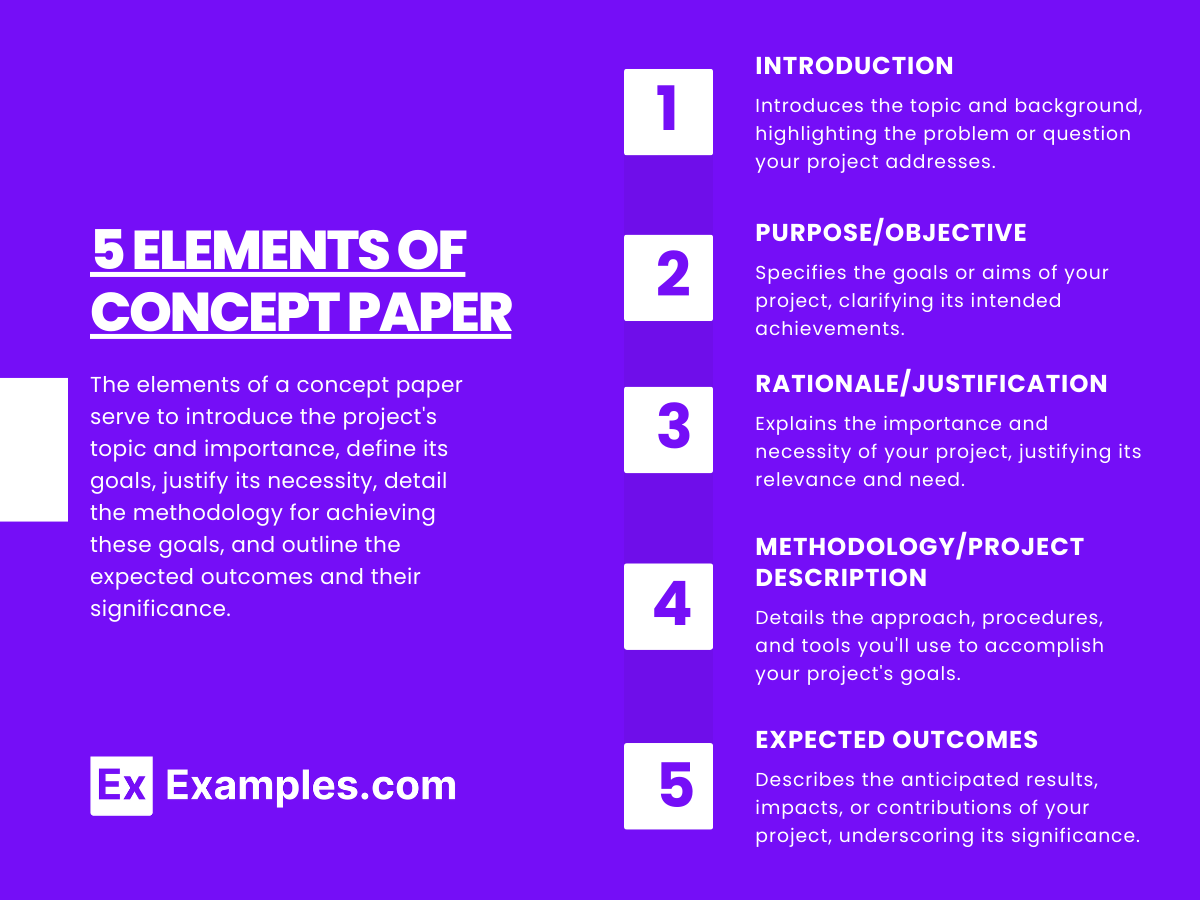
How to Make/ Create Concept Paper
1. Choose Your Topic Wisely
Select a topic that is both interesting to you and relevant to your audience or potential funders. It should address a specific problem, need, or question.
2. Conduct Preliminary Research
Gather information on your topic to ensure there’s enough background material to support your concept. This research will help refine your idea and identify gaps your project could fill.
3. Write the Introduction
Start with a strong introduction that captures the essence of your concept. Include a brief overview of the problem or issue your project intends to address, its significance, and why it is worth exploring or implementing.
4. State the Purpose or Objective
Clearly articulate the purpose or objectives of your project or research. What do you aim to achieve? Be specific about the outcomes you anticipate.
5. Provide Background Information
Offer a detailed background that gives context to your concept. This section should include any relevant research, current findings, and a justification for your project or study.
6. Describe the Project or Research Design
Outline how you plan to achieve your objectives. This includes your methodology, the steps you will take, and the resources you will need. For research projects, specify your research questions, hypothesis, and the methods for data collection and analysis.
7. Discuss the Significance
Explain the potential impact of your project or research. How will it contribute to the field, benefit a specific group, or solve a problem? This section is crucial for persuading readers of the value of your concept.
8. Outline the Budget (if applicable)
If your concept paper is for a project requiring funding, provide an estimate of the budget. Break down the costs involved, including materials, personnel, and any other resources.
9. Set a Timeline
Include a proposed timeline for your project or research. This demonstrates planning and feasibility and helps funders understand the project’s scope.
10. Conclude Your Paper
Summarize the key points of your concept paper, reinforcing the importance and feasibility of your project or research. End with a call to action or a statement of next steps.
Importance of Concept Essay
As we go along the path of discovering new and better ideas that could feed our minds with more useful information, we also need to pause and make sure that these concepts are well explained.
The main importance of a concept analytical essay is to provide a more vivid evaluation as well as explanation of the ideas that may seem ambiguous. We cannot just live in a world where we are fed with information that we are supposed to accept. Remember that we have the freedom to accept what is true and decline what is not. With a concept essay, we can dig deeper into things and find out its true essence.
When do you need a concept paper?
A concept paper is needed when initiating a project, seeking funding, or proposing an idea to stakeholders. It serves as a preliminary outline, presenting the project’s rationale, goals, and methodology in a concise format to gauge interest or secure support.
How is a concept paper different from a research paper?
A concept paper differs from a research paper in its purpose and scope. While a concept paper outlines a project idea, seeking approval or funding with a focus on potential impact and methodology, a research paper presents detailed findings from completed research, including analysis and results.
What is the purpose of a concept essay?
The purpose of a concept essay is to explore and clarify a specific idea or concept. It aims to deepen understanding and stimulate thought by examining the concept from various angles, using examples, definitions, and personal insights to articulate its significance and implications.


